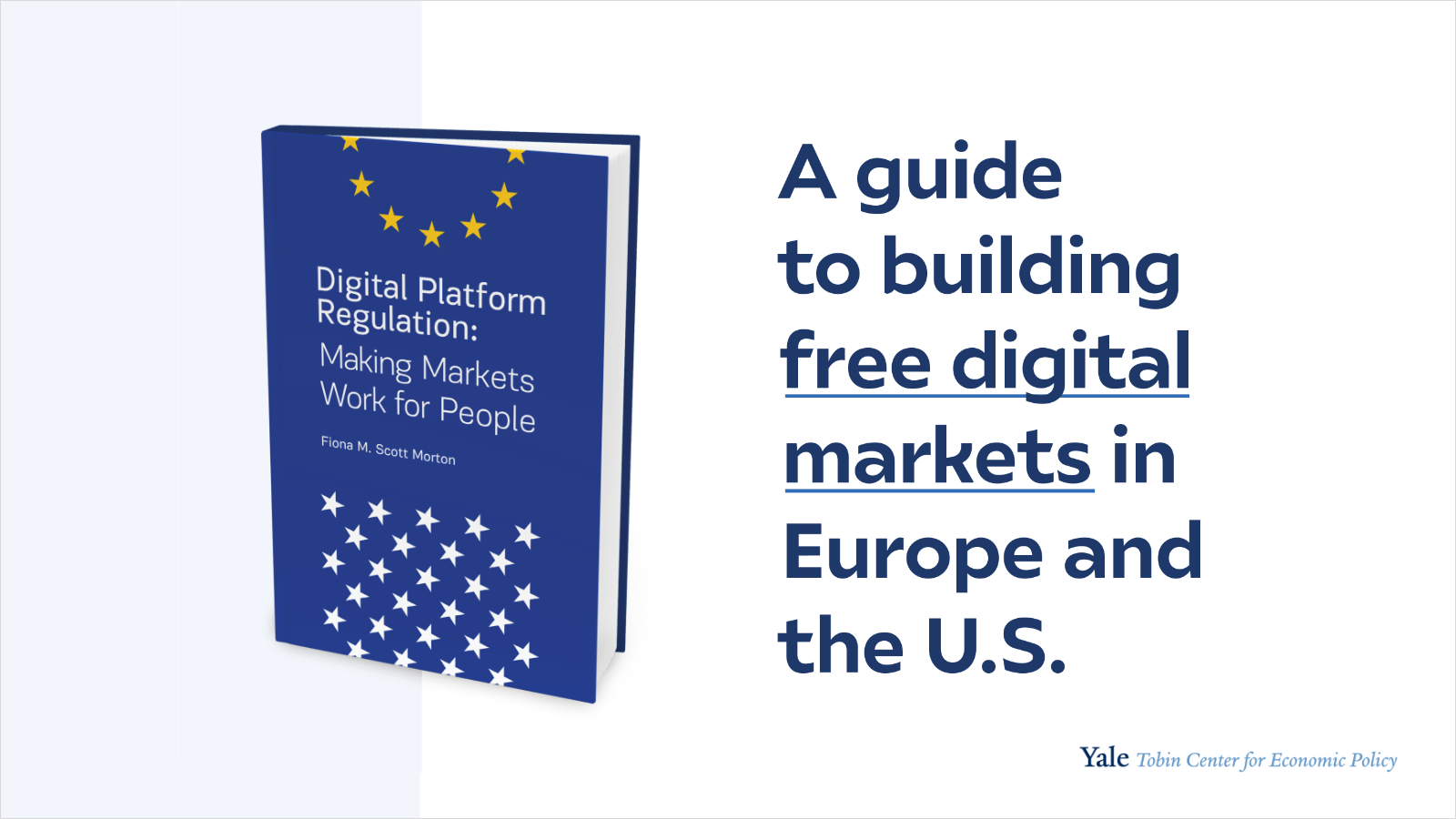For regulators and researchers, a new handbook on digital market regulation

Over the last two decades, enormous technological growth has created entirely new global markets. These digital markets have transformed the world we lived in, spurring innovation, creating jobs, and boosting economic growth.
Digital markets, however, have also posed new challenges for free market competition that affect businesses, consumers, and governments. Powerful network effects, economies of scale—particularly in data markets—and businesses leveraging market power in multiple related markets have tipped digital markets toward monopoly. Worldwide, governments have been slow to react to these challenges, and digital markets are currently dominated by a handful of supranational companies who act as gatekeepers and control the flow of innovation and profits through their own channels.
But the tide is starting to turn, and regulators, antitrust enforcers, and legislatures are catching up with these important economic problems. In 2022, the European Union (EU) passed the Digital Markets Act to create new requirements and prohibitions for digital gatekeepers. In 2024, the United Kingdom (UK) followed with the Digital Markets, Competition and Consumers Act. Meanwhile, in the United States, antitrust enforcers have brought a slate of cases against digital platforms concerning the same behavior.
In “Digital Platform Regulation: Making Markets Work for People,” I collaborated with American and European experts in the legal, economic, and technology fields to draw lessons from this work to-date, and to offer a practical guide to further opening digital markets to competition through the regulatory and judicial tools available in the two continents and beyond.
The book is free for anyone to download from the Thurman Arnold Project at the Yale School of Management.

This project dates back to 2019, when a swell of legal experts, economists, and technologists on both sides of the pond completed comprehensive analyses of antitrust and competition problems in digital markets. I served as the chair of the U.S. effort at the University of Chicago’s Stigler Center. In our 2019 report, we laid out a roadmap for much of the antitrust enforcement now being executed in the U.S. We concluded the report with the need for a regulatory approach to generate competitive outcomes for consumers—work that is just now beginning.
Across its six sections and thirteen essays, the book addresses a number of competition problems in digital markets and offers new solutions, including:
- How to open mobile ecosystems to app store competition, expand developer access to users worldwide, and create new possibilities and profit incentives in app development
- Strategies for creating pro-competitive data markets that protect users’ privacy and create new channels for consumers to benefit from data sharing
- Solutions for restoring search competition in the context of emerging artificial intelligence tools to protect nascent competition and incentivize entry
Ultimately, I hope the book can be a handbook for regulators, legislators, lawyers, researchers, and students.
For regulators and policymakers, it offers implementable policy recommendations to solve the key challenges states face today in these markets.
For students and researchers, it offers a path into studying and contributing to practical research on one of the newest and most engaging economic challenges of the century.
Fiona Scott Morton, Theodore Nierenberg Professor of Economics at the Yale School of Management, is a leading voice on antitrust and competition policy in both the United States and Europe. From 2011-12, she served as the Deputy Assistant Attorney General for Economics in the Antitrust Division of the United States Department of Justice. She is currently a fellow at Bruegel, a leading European think tank, and contributes her economic expertise to enforcement efforts in jurisdictions around the world.
Students interested in these ideas can reach out to the Thurman Arnold Project at Yale (TAP@yale.edu). Founded and led by Professor Scott Morton, the project provides opportunities for students to produce their own scholarship on these ideas and present proposals to policymakers.